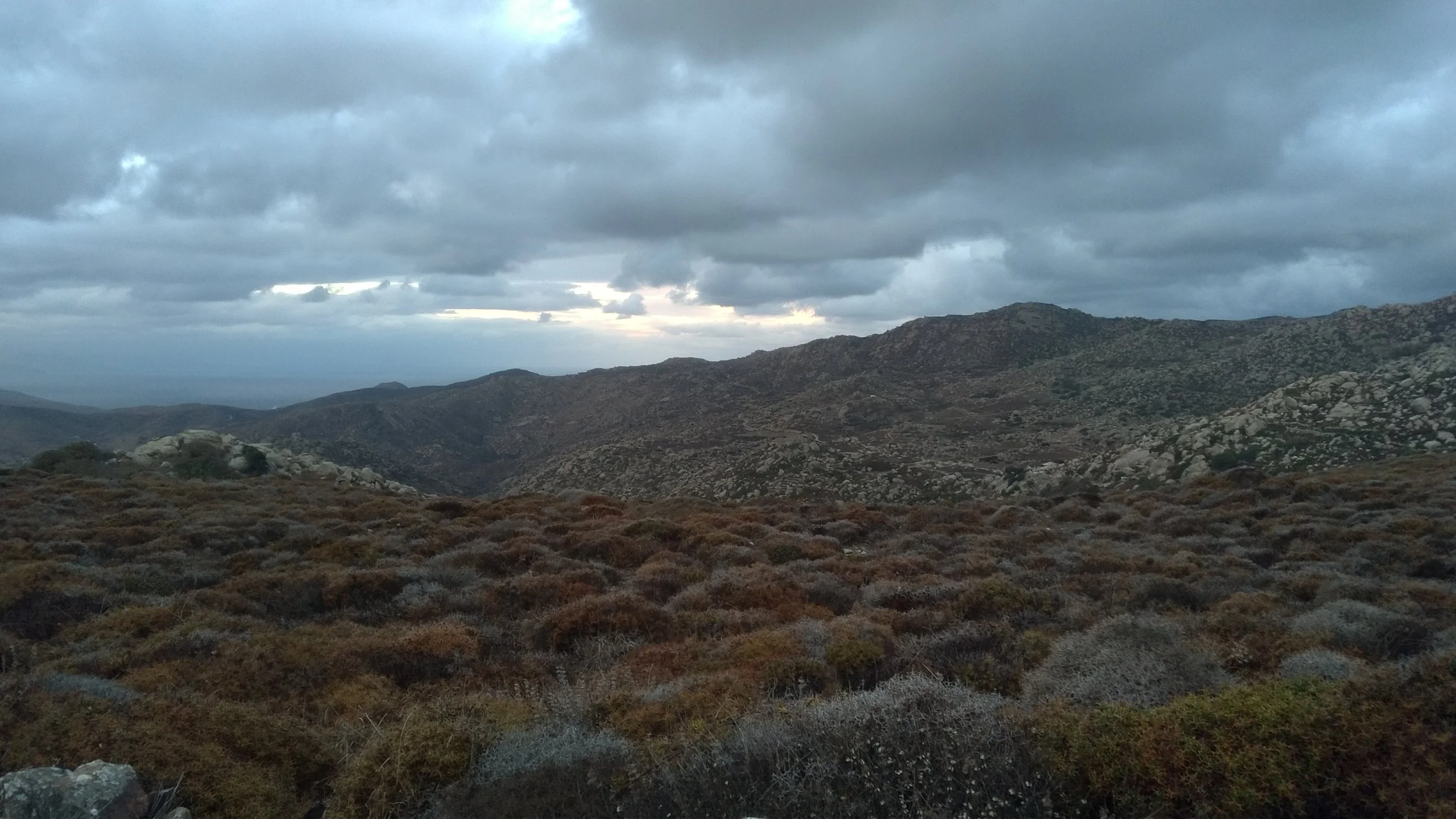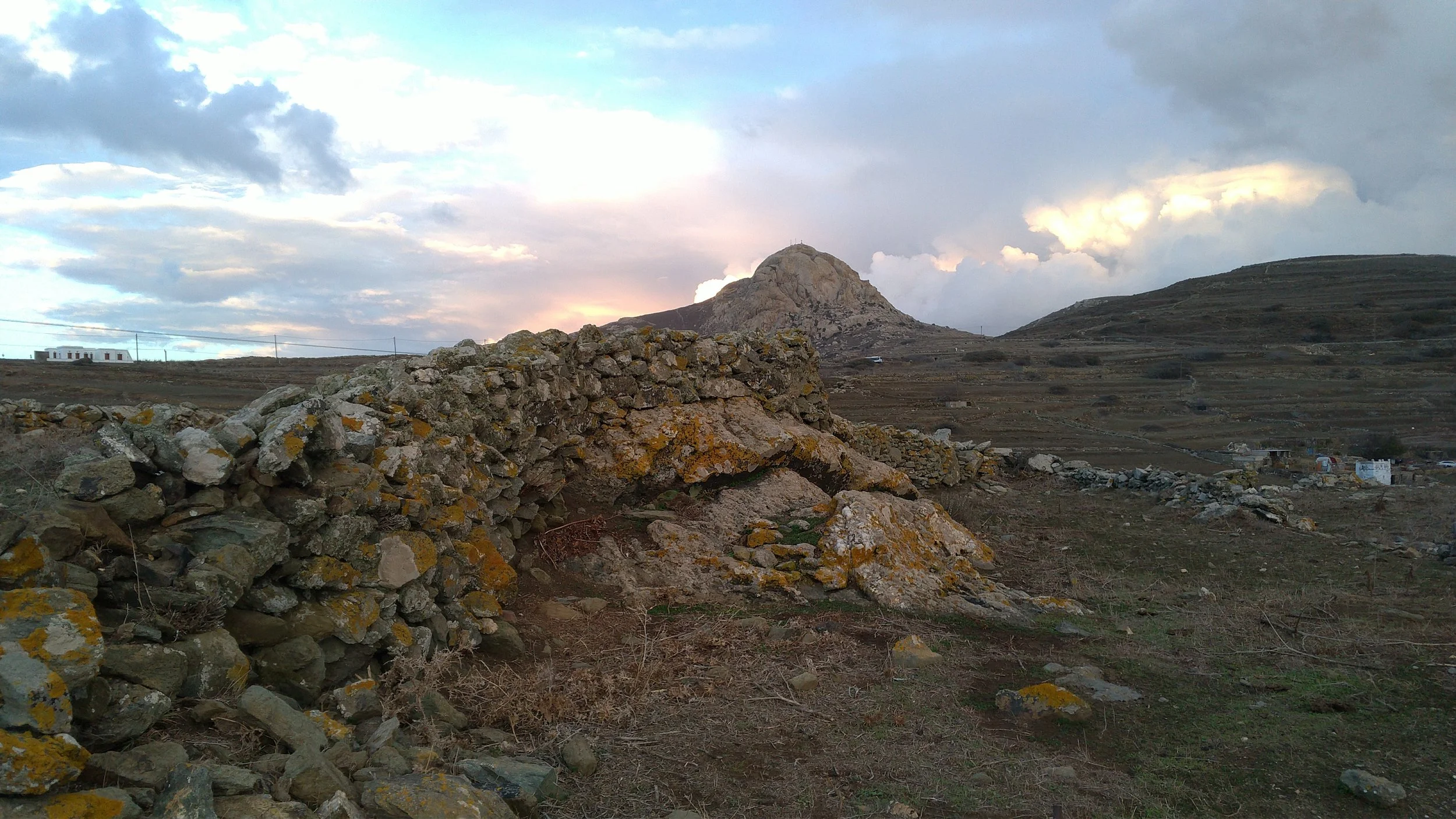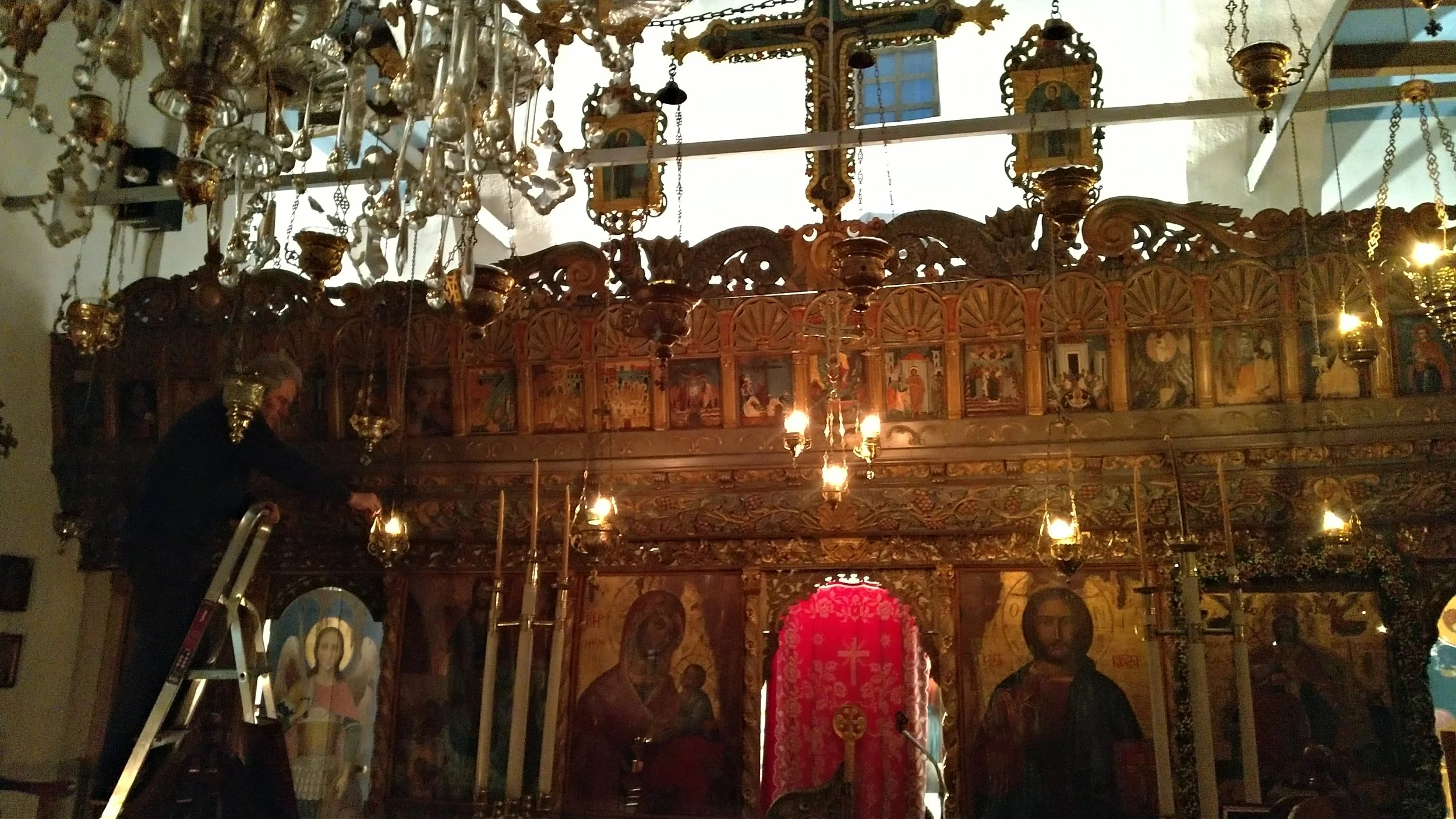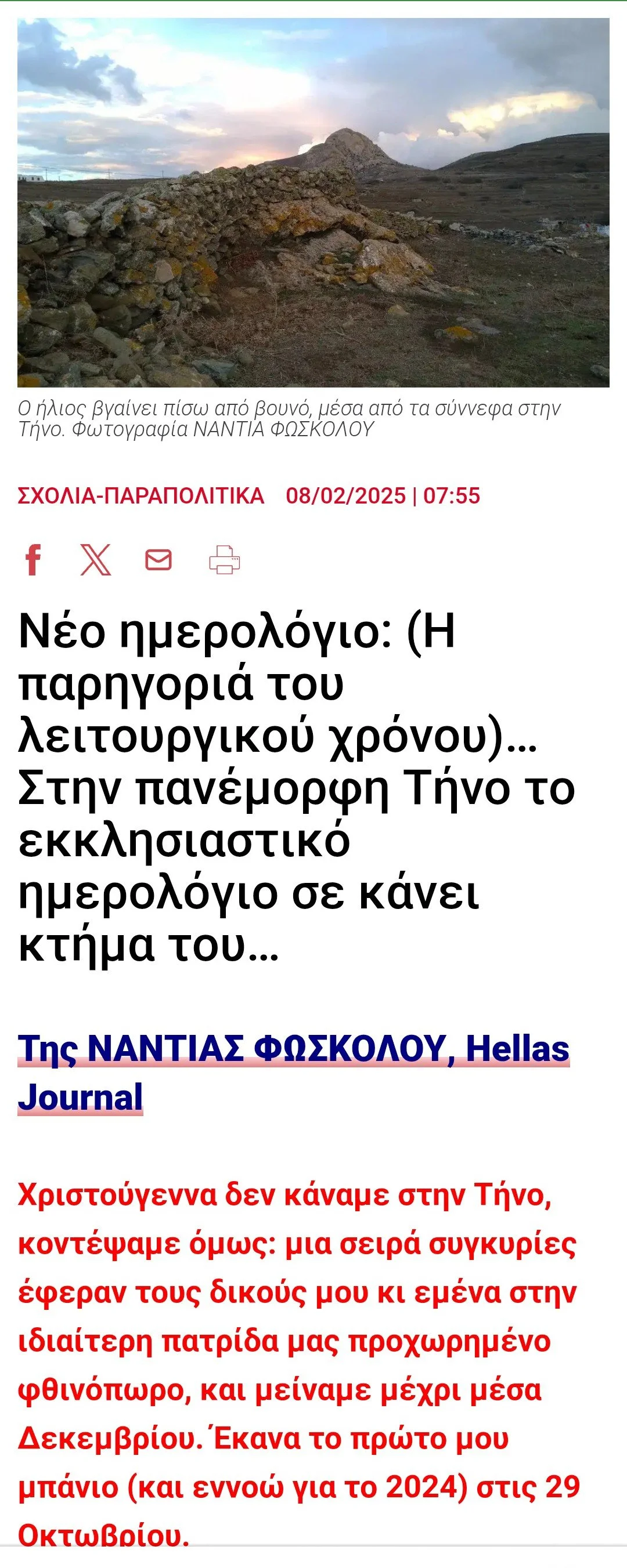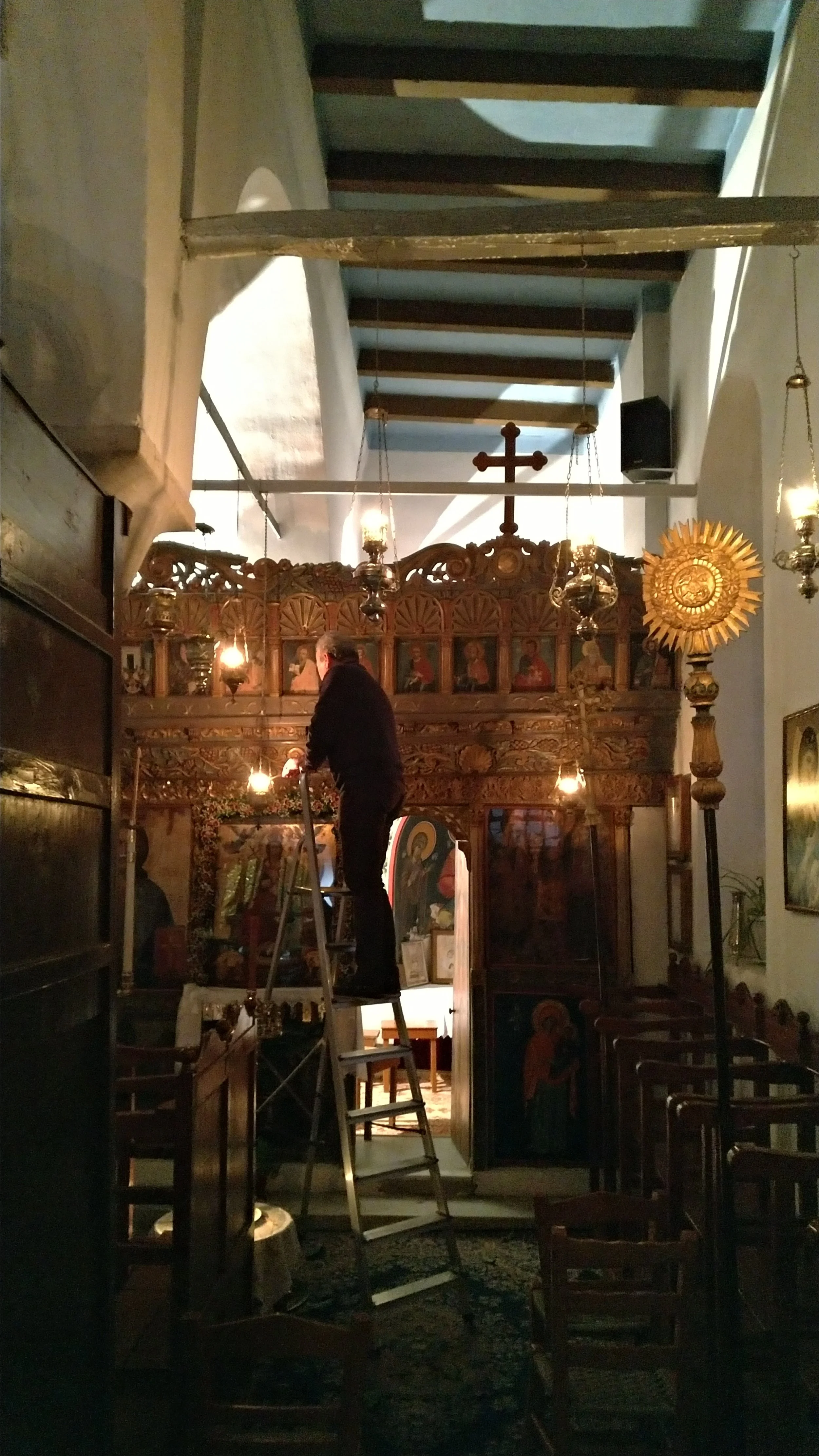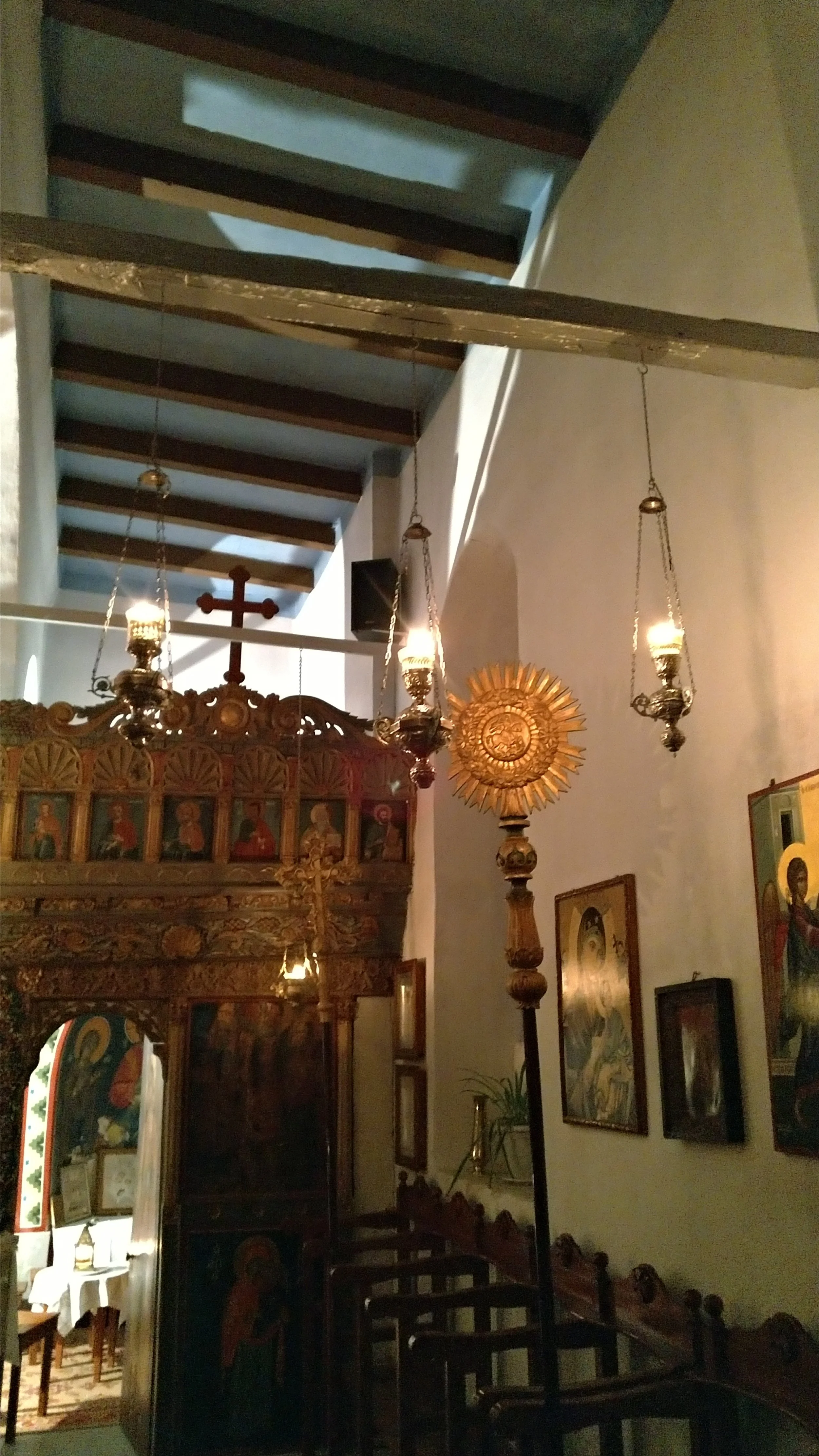We didn't actually spend Christmas on Tinos, but we got pretty close: things turned out in such a way that my father, sister and I came to the fatherland in late fall, and we stayed until mid-December. I took my first swim for the year (meaning 2024) on October 29th.
Thanks to the unstableness of the weather on the island, each single day acquired a special, unique hypostasis: every day contained the potential of becoming the landmark that would herald the end of “summer” (or of Indian summer) and the advent of “winter”; every single swim acquired a different kind of gravity – the stakes were high at each dive - you thought it might be the very last one, since, look, if the water cools, tomorrow I'm not going to get in – a mood very different from the summer one, when you are convinced that summer will last eternally.
And, while the first half of the day was preserving the golden Greek summer feel, in spite of the calendar reading “November”, the second half thrust us right into winter, not only thanks to the sunset and its subsequent chill, but also because of the explosion of Christmas decorations, which had started early: every day at dusk, I would bid farewell to swimming by line-drying my bathing suit on the balcony, and I would greet winter, since some new cute little deer would have popped up from the nearby houses or some new Nutcracker would have been added in the town's storefront windows; the next day, the sun was again hot at noon, and the sea again had not yet cooled down, so there we were, swimming again.
The consolation of liturgical time
At the same time, the following is happening: the ecclesiastical calendar wins you over. Even if you have nothing to do (or want to have nothing to do) with church stuff, if you find yourself on Tinos at this time of the year, it will be very hard to accomplish: the liturgical time embraces you, takes you into its folds firmly but charmingly, and, although it often spoils your sleep, it provides you with another kind of “lullaby”, an existential one: it offers you the consolation that you can let yourself get carried away by its flow, its cycle.
-Why so much bell-ringing from the Malamatenia church yesterday?
-At what time will the Three Hierarchs' church ring for liturgy on Sunday?
-Why is Saint-John's church tolling mournfully, Aunt? Who passed away?
The bells are not a decorative, optional element; inside them is ringing the very life of the island – they're a vital part of the ecosystem.
Then, there's the series of saints' feast days. November enters triumphantly with the feast day of Αgioi Anargyroi (Holy Unmercenaries), and goes on and on. Impossible to escape the 8th, since Taxiarchis (Archangel Michael) is the patron saint of Chora, the capital of Tinos. Don't even think of not stopping by the celebratory Vespers on the eve. (There's even going to be free treats for everyone from the staple pastry shop of “Chalaris!”) Impossible to not bump into the litany on the day of the feast (and you will make sure not to park your car on the streets where the procession passes; special announcements have warned you several days in advance).
Once you get in the... spirit, the whole island opens up in front of you. We've already spent a lifetime exploring it, and we're not nearly done yet; we might as well combine our exploration with the saints' feasts and the remote chapels:
For the Entrance of the Theotokos to the Temple, there will be Vespers at Katapoliani church. This means swim at Kionia beach, then off we go to Pyrgos village.
If you want to experience a scene out of Tarkovsky, go before Vespers to Agia Aikaterini in Kambos village: the acolyte lights one by one the forty-plus vigil oil lamps and candles in the twilight, with no electricity on.
Who knew: there is an Agios Stylianos chapel right above the Langadi (the valley), steps away from our house!
Where on earth is the hidden road leading to Agios Andreas in Apergados village, right next to Ktikados, our grandfather's village?
It doesn't matter how “deep” religious conscience in those feasts (panigyria) is; what does matter is the abounding feel of community, hospitality and jubilation, which, I think, is founded on the primordial human need to mark the relentless Time: the feasts' calendar gives it a sort of shape, the liturgical cycle becomes a crutch.
After the traditional procession, during which the residents descend from the nearby villages on foot, carrying the saint's icon, fasters and non-fasters, locals and visitors, meet up in the courtyard of Agia Varvara and enjoy a communal meal in the warm, brightly lit, impeccably clean refectory. I don't know if our super polite and elegant baker observes all religious dictates; what I do know is that, in the decades we have been her clients, I've never seen her speak so enthusiastically as about her village's panigyri, for which she and all her fellow villagers labor indefatigably and proudly: “Come come, do sit down now for the chickpea soup, and come back again tomorrow for the garlic pasta. Please, take a seat!”
(And, yes, here we are in December.)
The footprint
As is the case with any human activity, so it is with the panigyria: they geometrically increase the human species' footprint on nature. Packaging multiplies and expands – now even artos (the blessed loaf bread) comes individually wrapped in plastic pouches, raki (the traditional spirit) is served in disposable plastic cups that, best case scenario, will find their spot in the humongous bundles of the island's garbage (the garbage of the residents and visitors of the island, to be precise), which are resting patiently in a place distant, a place desolate (on that same island); worst case, they will end up in the sea (not unlikely, in the land of Aiolos, ruler of the winds).
At the magical Vespers of Saint Nicholas in Pyrgos, we tried to limit ourselves to one disposable plate; in spite of the pressure (“go ahead, take another plate”), we tried, politely, to explain to the panigyri organizers that we are a family, therefore all three of us will share one little plastic plate, so that we can reduce, as much as we can, the consumption of single-use plastic. And, as far as disposable utensils go, no, thank you, we're not going to take those – we always carry with us our own, reusable ones. They were looking at us as if we were extraterrestrials. They accepted it though. (And perhaps our choice left some imprint, became food for thought, a stimulus for behavior change.)
Our everyday behavior and our worshiping activity seem to still be dwelling in two autonomous spheres: we will venerate God with our religious rituals, one realm, and the footprint of our species on planet Earth is another, separate realm.
Wrapped in strings of festive lights, the centenarian plane tree in the middle of the village square, accompanied by the chanting in the crystal night, overmatches any Rockefeller Center Christmas tree. The bright circles, like orbits, bring to mind the solar and the terrestrial and the geological and the eschatological time. For me, Christmas and the holidays were over then and there, on the eve of Saint Nicholas, by the ornamented plane tree. I have the new calendar ready, and I am awaiting the fullness of time.
This essay first appeared in Greek in HellasJournal.com on February 8, 2025.
Το κείμενο αυτό πρωτοδημοσιεύτηκε στο HellasJournal.com στις 8 Φεβρουαρίου 2025.
Για να διαβάσετε το ελληνικό κείμενο, κάντε κλικ εδώ.


